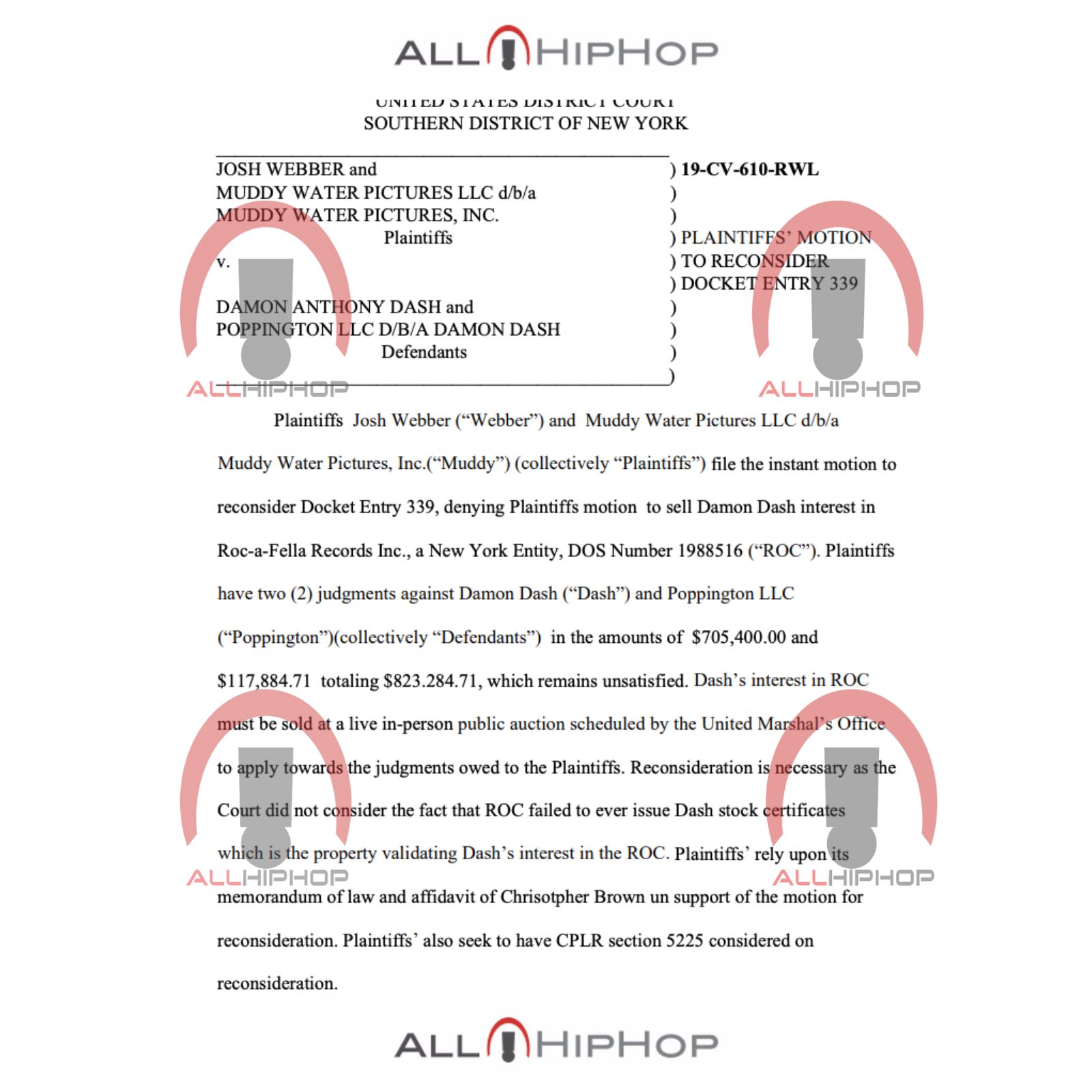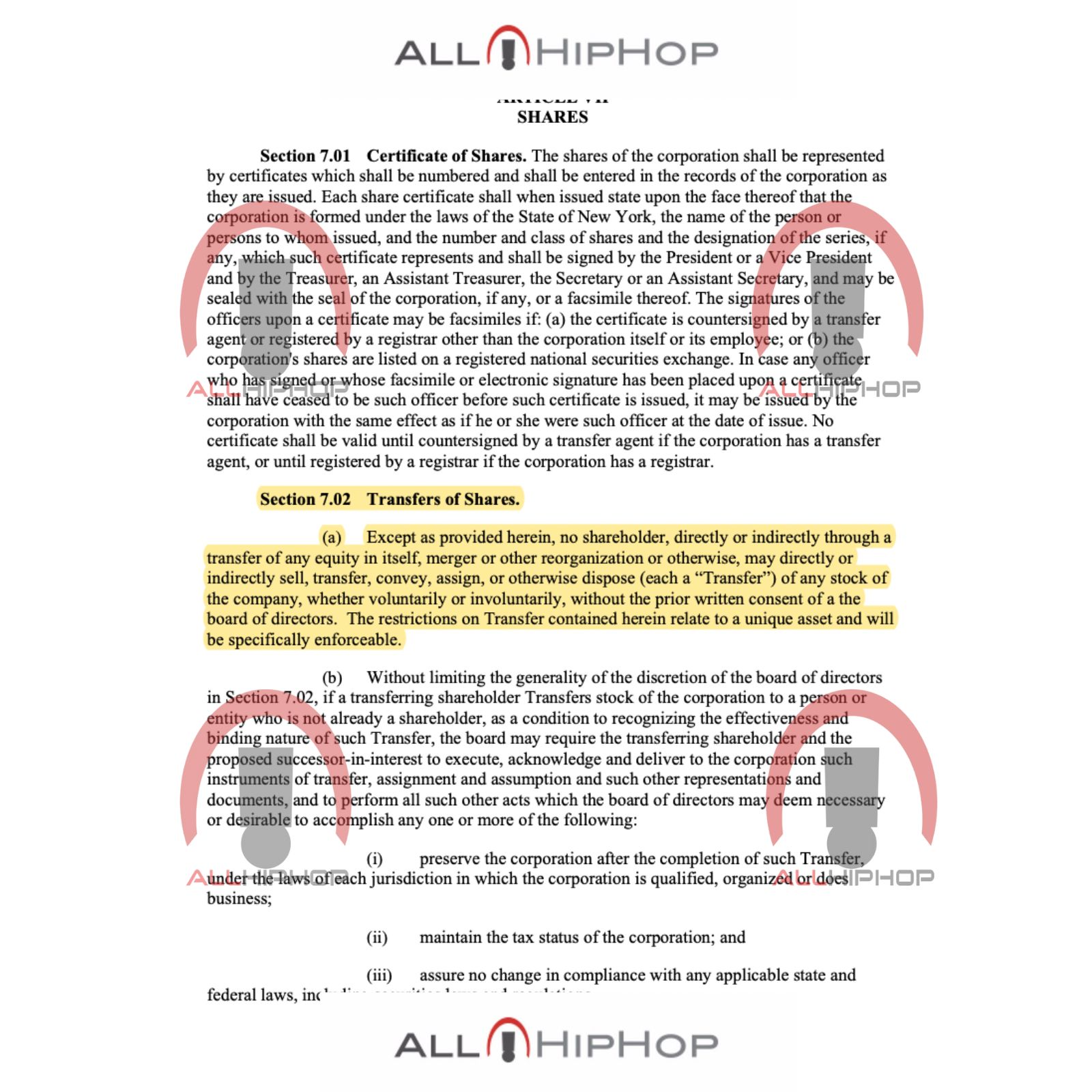Damon Dash’s ownership share in Roc-A-Fella Records could be at risk of being auctioned off if his nemesis lawyer has his way. The origins of the latest drama involving Damon Dash and his ownership of Roc-A-Fella Records – which he launched in 1995 with Jay-Z and Kareem “Biggs” Burke stems from a strained relationship between Dash and filmmaker Josh Webber.
In 2016, Muddy Water Pictures enlisted Dash to co-direct the movie “Dear Frank.” However, two years later, Dash was ousted from the project for allegedly being high on the set.
Not taking the dismissal lightly, Dash reportedly began promoting himself as a producer for the movie, even changing the film’s title to “The List.”
This led to a lawsuit filed in 2019, culminating in a jury ruling against Dash, directing him to pay $805,000 in damages to Webber and Muddy Water Pictures.
To settle the “Dear Frank” judgment, Webber’s lawyer, Christopher Brown, is pushing to sell Dash’s one-third interest in Roc-A-Fella at a live, in-person public auction. Brown has been a thorn in Damon’s side for years and has secured judgments against Dash in lawsuits related to stolen movies, photographs, defamation, and even sexual assault.

However, high-powered lawyer Alex Spiro, who represents Jay-Z and his interests, recently entered the legal battle, objecting to Christopher Brown’s attempt to auction off Damon’s shares in Roc-A-Fella. Spiro referenced the company’s by-laws forbidding any such transfer or sale.
Spiro explained that the by-laws necessitate board approval before transferring any equity interest, a consent that neither party has sought or obtained.
“Neither [ Brown or Webber] nor Dash have obtained (or even sought) permission to auction Dash’s 1/3rd interest in [Roc-A-Fella Records]. As a result, any purported transfer of Dash’s 1/3rd interest in [Roc-A-Fella Records] at the public auction [Brown and Webber] seek would be ‘void and ineffectual’ and would ‘not operate’ to transfer Dash’s interest. And the [Roc-A-Fella ] board is entitled to decide whether to approve any transfer of Dash’s interest,” Alex Shapiro explained.
Currently, the judge has sided with Roc-A-Fella, albeit due to a technicality because Brown and Webber failed to establish that the sheriff or U.S. Marshal has obtained any such interest, a prerequisite for ordering the sale of a judgment debtor’s interest in personal property.
Moreover, the board of Roc-A-Fella has asserted its right to intervene, although it has yet to formally move to do so, indicating potential complications in future proceedings. Despite the setbacks, Christopher Brown remains undeterred.

In his latest reply to the judge, he urged the court to reconsider, pointing out that Roc-A-Fella failed to issue Dash stock certificates, a critical factor validating Dash’s interest in the label.
The judge has yet to issue a final ruling. The new battle for Damon Dash’s shares in Roc-A-Fella is the latest legal headache for the owners of the storied label.
In 2021, Jay-Z and Roc-A-Fella Records sued co-founder Dame Dash for allegedly attempting to sell his shares of the label as a “Reasonable Doubt” NFT without authorization.
The dispute reached a resolution in June 2022, with both parties agreeing that no individual shareholder of the record label could mint an NFT of the album or engage in any unauthorized disposition of any property interest in the album, including its copyright.
However, the settlement did not restrict any shareholder from selling or disposing of their one-third ownership interest in the corporation.
